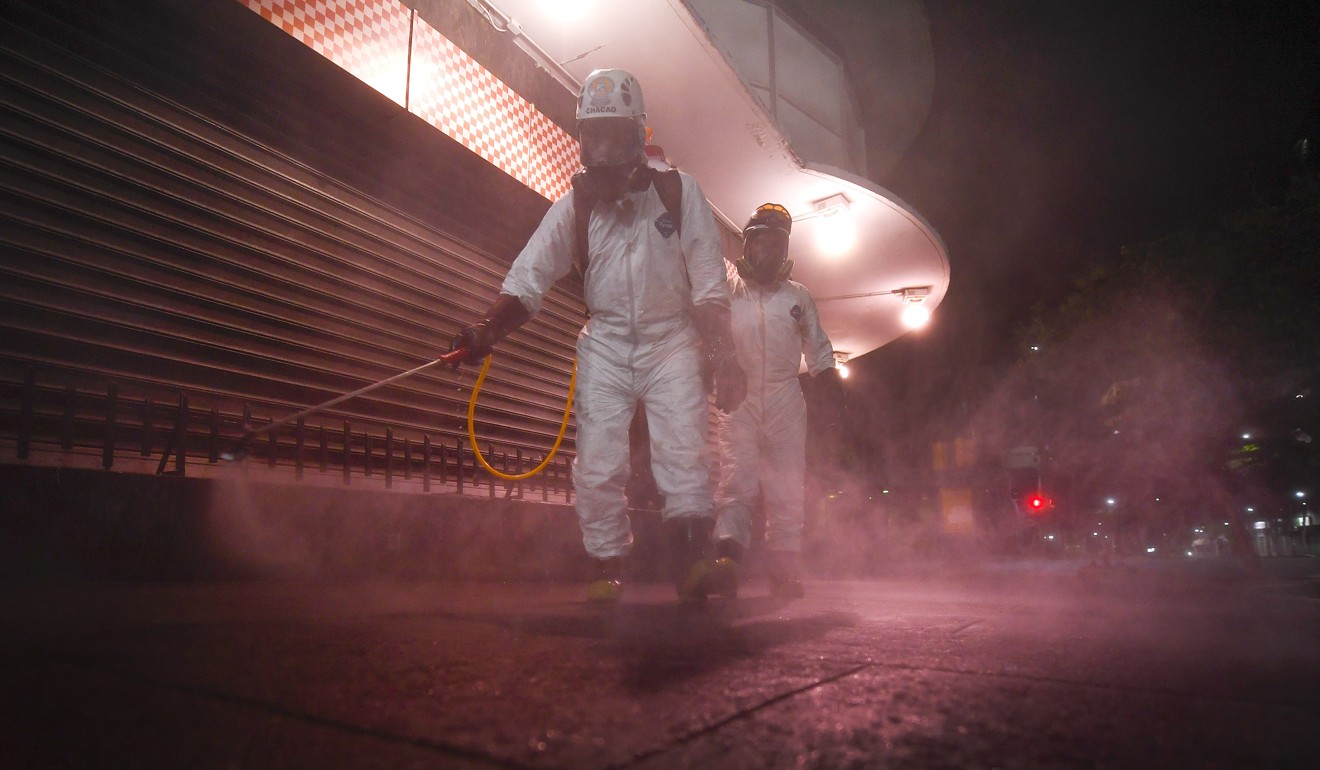
Covid-19 and Sars: a cautionary tale of two crises for Hong Kong’s all-important property market
- Although Hong Kong’s property market has been steadily slowing because of the coronavirus epidemic and social unrest before that, demand is holding up for now
- Property seen as a relatively stable asset compared to equities as stock markets continue to get battered worldwide
The Covid-19 pandemic is beginning to take a toll on the economy and has drastically affected our daily lives. But in moments of crisis there are also opportunities that inevitably arise. When looking at the situation purely from an investment perspective, drops in property market prices are contributing to something of a silver lining for potential buyers.
When Sars (severe acute respiratory syndrome) hit in 2003, Hong Kong and its property market were in a very different place. As the city became the epicentre of an unknown disease, there was less knowledge and information on hand for an even longer period of time. The mystery and suddenness of the illness caught Hong Kong off guard, which understandably generated considerable anxiety.
At that time, property prices were falling off a low base near the end of a depressed property cycle. For example, a HK$30 million (US$3.9 million) home could be picked up for HK$20 million. But today, that same house may be closer to HK$100 million and it’s not going to drop back into the HK$20-30 million range.
Eight weeks ago, Covid-19 was considered to be a regional problem, but now it’s shutting the world down. Against this backdrop, the Hong Kong property market has been slowing. Nearly eight months of protests had already pushed prices down by 10 per cent, and now they’re drifting down again. While this may seem like the start of a major correction, ultimately it is demand that sets prices. Currently all signs point to demand remaining robust.

In leasing, it’s currently a renter’s market and tenants are taking advantage of falling rents to seek out better deals, despite their own job and location uncertainty. In sales, that same uncertainty is keeping some buyers out of the market, but just as many are capitalising on prices that are down by as much as 20 per cent in some cases.
That’s an amazing change from just 18 months ago, and investors of all stripes should understand that they are witnessing a rare opportunity. Plenty of potential buyers with cash are watching and waiting for more value in the market or even for distressed sales. The Federal Reserve cutting interest rates to nearly zero and resetting Hibor at roughly 1.73 per cent (as of March 19) are also a lure.
The relatively insulated ultra-luxury segment (properties over HK$300 million) will be less affected as usual, but moderate corrections in the HK$100-$200 million are likely, and greater in the more sensitive HK$20 to HK$80 million range. The under-HK$10 million bracket, which has been propped up by Chief Executive Carrie Lam Cheng Yuet-ngor loosening lending restrictions in her last policy address, is even more active as transaction figures have actually crept up the last three months.
For those fearing the property sector is about to go off a cliff, that’s also unlikely. There’s too much security and too little debt (thanks to tight lending regulations) to lead to a disastrous 30 per cent or 40 per cent drop. As it currently stands, only realistic offers are being proffered, and property assets are not distressed. In fact, property is being regarded as a more stable asset than equity markets, and as stock markets remain volatile, property will continue to look even more attractive.
As we enter a record-low interest rate environment with governments’ stimulus, many buyers will see this as an opportunity to buy property to hedge against potential asset price increases once the virus is under control and economies stabilise.
In these uncertain times, Hong Kong has been able to do what it does best: it has been resilient and gotten down to work by drawing upon its previous Sars experience — the only parallel that fits the current crisis — to the point that it is now considered to be a relative safe haven. As Hong Kong residents abroad rush back to the city as other countries begin their battle with Covid-19, there’s a feeling that the situation in our city is relatively better or more under control, and that the people are prepared to deal with this “new normal”.
Time will tell if the bump in property sales continues in the immediate future, but regardless of how dire things may look and feel, there are still many reasons to be confident in the city’s ability to rebound – be it six, 12 or 18 months. The problems we’re currently facing from Covid-19 are much bigger than Sars — and we’re not alone in this struggle this time. But Hong Kong will weather the storm, as it always does.
Victoria Allan is the founder and managing director of real estate agency Habitat Property
Purchase the China AI Report 2020 brought to you by SCMP Research and enjoy a 20% discount (original price US$400). This 60-page all new intelligence report gives you first-hand insights and analysis into the latest industry developments and intelligence about China AI. Get exclusive access to our webinars for continuous learning, and interact with China AI executives in live Q&A. Offer valid until 31 March 2020.

